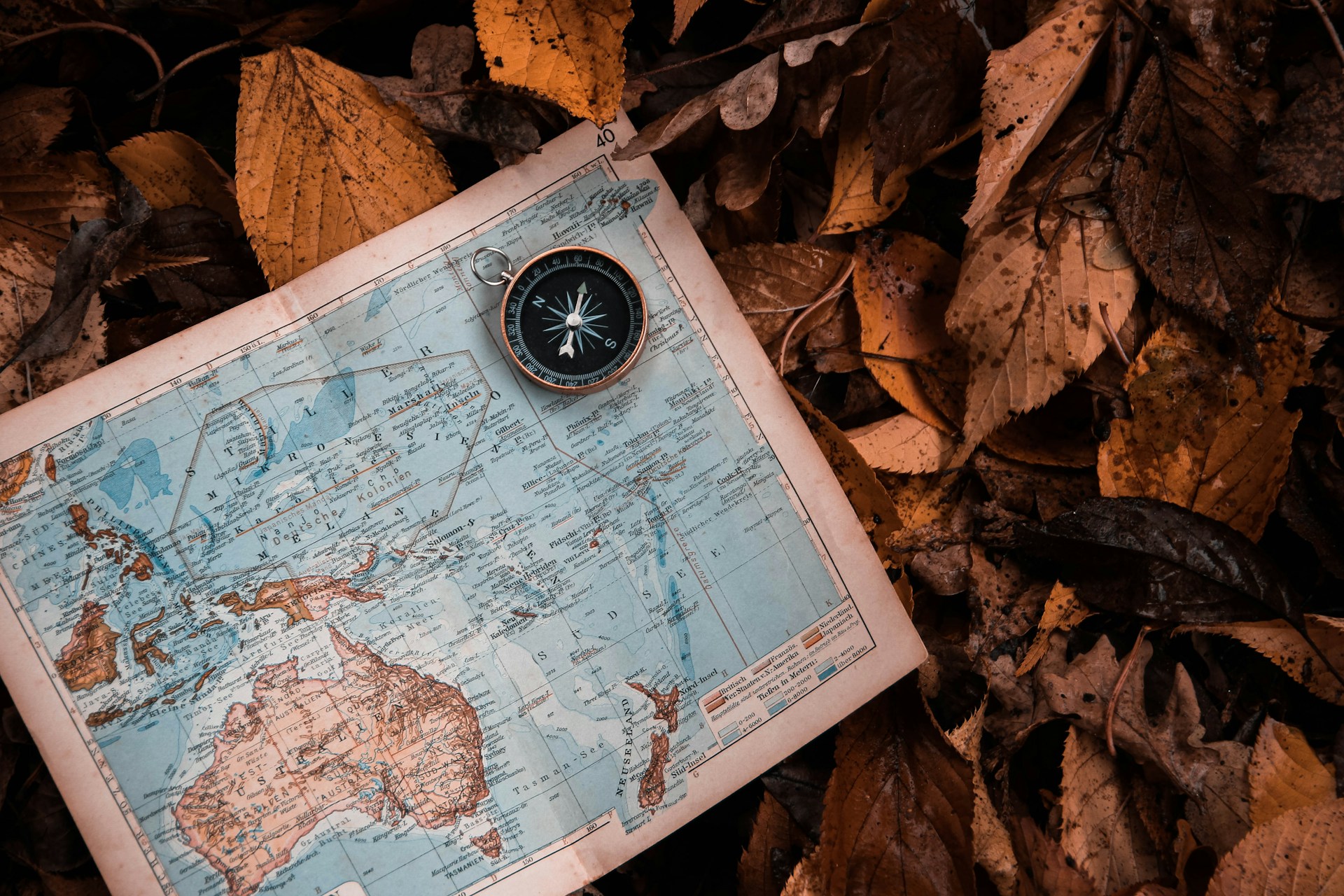Planning an international trip takes patience, structure, and clear priorities. Travelling Weasels’ essential preparation checklist for overseas trips can support this process and keep everything on track. A well-crafted itinerary gives your journey flow and keeps stress low. It guides daily choices without limiting discovery. When you map out the essentials, you gain freedom to enjoy each moment. A balanced plan also helps you stay organized from arrival to departure. It becomes your anchor through all the excitement of exploring a new place. Building it the right way makes every day feel smooth and purposeful.
Understanding Your Travel Goals
 Every itinerary starts with intention. You must know why you are taking the trip. Some travelers want culture. Others want rest or adventure. Your goals define the rhythm of your journey. They shape your destinations and the time spent in each place. When you understand your purpose, the entire trip becomes clearer. You avoid unnecessary stops. You save time and energy. Clarity gives direction and helps you create meaningful experiences, not random ones. This step sets the foundation for everything else. However, many tend to overlook this and make things confusing for them.
Every itinerary starts with intention. You must know why you are taking the trip. Some travelers want culture. Others want rest or adventure. Your goals define the rhythm of your journey. They shape your destinations and the time spent in each place. When you understand your purpose, the entire trip becomes clearer. You avoid unnecessary stops. You save time and energy. Clarity gives direction and helps you create meaningful experiences, not random ones. This step sets the foundation for everything else. However, many tend to overlook this and make things confusing for them.
Researching Destinations in Depth
Research matters more than many realize. It helps you learn what each location truly offers. Weather conditions, local customs, peak seasons, and transportation options all shape your experience. Reading guides and watching updates helps you form expectations. It also prevents surprises. Your research should highlight what is worth seeing and what you can skip. This knowledge keeps your itinerary realistic. It also lets you spot unique opportunities that typical tourists overlook. Strong research creates informed choices that support a smoother trip.
Structuring Your Travel Timeline
Your timeline must feel natural. Give each destination enough time without rushing. Consider travel days, as they often consume more hours than expected. You should also include transitions between cities or countries. These details create accurate pacing. A structured timeline keeps you grounded and prevents overload. It also makes room for rest. You do not need to fill every hour. A flexible but organized timeline helps you enjoy each day fully. It keeps stress low and creates consistency throughout the trip.
Mapping Essential Logistics Early

Logistics form the backbone of your schedule. Start with flights, accommodations, and transport. These elements decide how your days unfold. Early planning avoids complications and protects your budget. It also gives you better choices in timing and location. Hotels near transit routes make moving easier. Pre-booked passes save long waits. When your logistics are clear, everything else flows. This step may not feel exciting, but it is vital. It supports safety, comfort, and predictability throughout the trip.
Balancing Activities With Downtime
Good itineraries blend activity and calm. Too many plans can drain your energy. Too little structure can lead to wasted time. Balance is the key to flow. Choose your main activities for each day, then leave space for spontaneity. This lets you follow your curiosity without falling behind. Downtime also helps you process the new sights, sounds, and flavors around you. Travel becomes more enjoyable when your mind and body feel steady. A balanced itinerary keeps your enthusiasm alive from start to finish.
Preparing for Cultural and Practical Differences
International travel introduces you to new ways of living. Respect for local culture enhances your experience. Learn basic etiquette, greetings, and dining customs. These efforts help you connect with the community. They also prevent misunderstandings. Practical differences matter too. Electrical outlets, currency rules, and transportation norms vary widely. Preparing for these small details strengthens your confidence abroad. The more you understand before you arrive, the smoother your trip feels. Preparation makes every encounter more meaningful.
Creating Room for Flexibility and Discovery
 The best itineraries leave space for surprise. Some of your favorite moments may be unplanned. A quiet street, a hidden café, or a festival you did not expect can shape your memories. Flexibility keeps your journey fresh. It allows you to follow your instincts. It also helps you adapt when plans shift. Weather, crowds, or closures can change your schedule at any moment. With a little flexibility, those changes do not disrupt your trip. They simply redirect it. Treat your itinerary as a guide, not a rulebook. This ensures that your travel experience stays enjoyable and authentic, even when plans evolve.
The best itineraries leave space for surprise. Some of your favorite moments may be unplanned. A quiet street, a hidden café, or a festival you did not expect can shape your memories. Flexibility keeps your journey fresh. It allows you to follow your instincts. It also helps you adapt when plans shift. Weather, crowds, or closures can change your schedule at any moment. With a little flexibility, those changes do not disrupt your trip. They simply redirect it. Treat your itinerary as a guide, not a rulebook. This ensures that your travel experience stays enjoyable and authentic, even when plans evolve.
Building the perfect international travel itinerary is a thoughtful process. It requires clarity, research, structure, and flexibility. Each part of the plan supports the next. A well-crafted itinerary makes room for adventure while keeping your journey manageable. It also helps you stay grounded as you move across borders and cultures. When you prepare with care, your travels feel smooth and memorable. The right plan brings comfort and excitement together. It ensures that every day abroad contributes to a fulfilling experience.




 Every itinerary starts with intention. You must know why you are taking the trip. Some travelers want culture. Others want rest or adventure. Your goals define the rhythm of your journey. They shape your destinations and the time spent in each place. When you understand your purpose, the entire trip becomes clearer. You avoid unnecessary stops. You save time and energy. Clarity gives direction and helps you create meaningful experiences, not random ones. This step sets the foundation for everything else. However, many tend to overlook this and make things confusing for them.
Every itinerary starts with intention. You must know why you are taking the trip. Some travelers want culture. Others want rest or adventure. Your goals define the rhythm of your journey. They shape your destinations and the time spent in each place. When you understand your purpose, the entire trip becomes clearer. You avoid unnecessary stops. You save time and energy. Clarity gives direction and helps you create meaningful experiences, not random ones. This step sets the foundation for everything else. However, many tend to overlook this and make things confusing for them.
 The best itineraries leave space for surprise. Some of your favorite moments may be unplanned. A quiet street, a hidden café, or a festival you did not expect can shape your memories. Flexibility keeps your journey fresh. It allows you to follow your instincts. It also helps you adapt when plans shift. Weather, crowds, or closures can change your schedule at any moment. With a little flexibility, those changes do not disrupt your trip. They simply redirect it. Treat your itinerary as a guide, not a rulebook. This ensures that your travel experience stays enjoyable and authentic, even when plans evolve.
The best itineraries leave space for surprise. Some of your favorite moments may be unplanned. A quiet street, a hidden café, or a festival you did not expect can shape your memories. Flexibility keeps your journey fresh. It allows you to follow your instincts. It also helps you adapt when plans shift. Weather, crowds, or closures can change your schedule at any moment. With a little flexibility, those changes do not disrupt your trip. They simply redirect it. Treat your itinerary as a guide, not a rulebook. This ensures that your travel experience stays enjoyable and authentic, even when plans evolve.
 The first thing to do is remove rust spots. The only way to stop the rust beetle is to replace the rusty parts. However, this can be expensive and sometimes requires special equipment. You can save time and remove as much rust as possible. Then use putty to shape and repair the body. Use high-quality putty and several grades of sandpaper to match the surrounding paint. The final product will be well worth the time invested.
The first thing to do is remove rust spots. The only way to stop the rust beetle is to replace the rusty parts. However, this can be expensive and sometimes requires special equipment. You can save time and remove as much rust as possible. Then use putty to shape and repair the body. Use high-quality putty and several grades of sandpaper to match the surrounding paint. The final product will be well worth the time invested.  The living area of the van could use some refinishing. We measured the van and searched the internet for interior design ideas. We took inspiration from various vans. Google SketchUp, a free program, was used to design the interior of the van and create a construction guide. I had to remove all the existing woodwork that was covered in oil from the previous owner’s dirt bikes. Some cracks in the plywood floor needed to be welded. It was a tedious task that I had to drag out as the weather changed and it rained. The cracks were quickly welded and a new plywood floor was assembled once I got started. I was able to draw the design on the wood floor with a marker and then follow the plans.
The living area of the van could use some refinishing. We measured the van and searched the internet for interior design ideas. We took inspiration from various vans. Google SketchUp, a free program, was used to design the interior of the van and create a construction guide. I had to remove all the existing woodwork that was covered in oil from the previous owner’s dirt bikes. Some cracks in the plywood floor needed to be welded. It was a tedious task that I had to drag out as the weather changed and it rained. The cracks were quickly welded and a new plywood floor was assembled once I got started. I was able to draw the design on the wood floor with a marker and then follow the plans.

